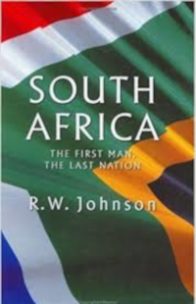South Africa
The First Man, The Last Nation
R W Johnson
Africa is the cradle of mankind and the first traces of modern man come from South Africa. But the country has also experienced waves of inward migration from the earliest times, and the turmoil and wars that accompany them. Dutch settlers landed at Table Bay in 1652. In the young colony inter-racial marriages were common but the segregationist trend was soon clear.
The 19th century saw the rise of several African states, notably the Zulus under their leader Shaka; the Zulu wars; the discovery of diamonds and then gold. And then in 1899 the Boer War, with its bitter aftermath. After 1918 Afrikaner nationalism began to gather momentum and in 1948 apartheid became official policy. But soon the ANC had its own momentum. After Sharpeville came the Rivonia trial, the Soweto uprising, the death of Steve Biko and the United Democratic Front.
But it was economic problems and the end of the Cold War which finally finished apartheid and released Nelson Mandela in 1990. Since 1994 crime, unemployment and inequality have flourished alongside the callousness of Thabo Mbeki’s regime.
The author delivers frank and devastating judgements both on the apartheid years and government by the new ANC elite. For this is a country that still awaits a government who will govern for the whole nation.
First published by Weidenfeld & Nicholson (Hachette, UK) in 2004.

Reviews
‘Johnson’s new history of South Africa is absolutely gripping, and a masterful example of one man’s commitment to the historical truth in the face of his own opinions and those of society.’
Catholic Herald
‘A challenging, robustly honest account of South African history in the round.’
Literary Review
‘Johnson shows his mastery of both the broad sweep and the complexities of history without bias.’
Anthony Sampson, Evening Standard
‘This is a well written and necessary book which challenges the myths draping the rainbow nation.’
Daily Telegraph
‘It is splendidly argumentative history, and great fun…But the argument rings loud and clear.’
Financial Times